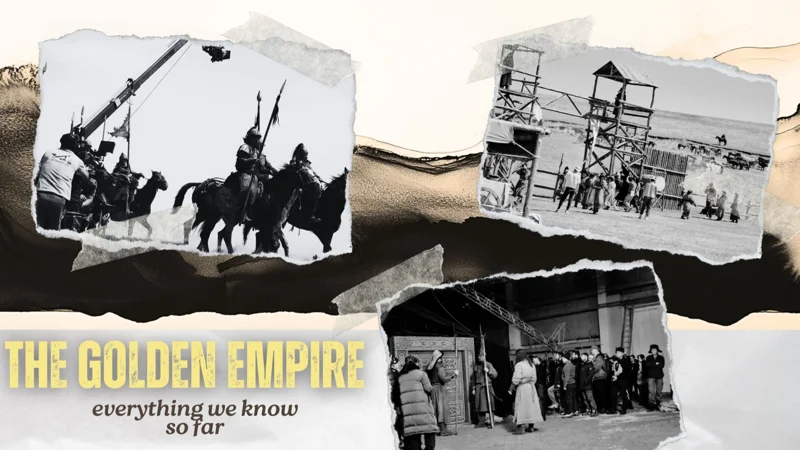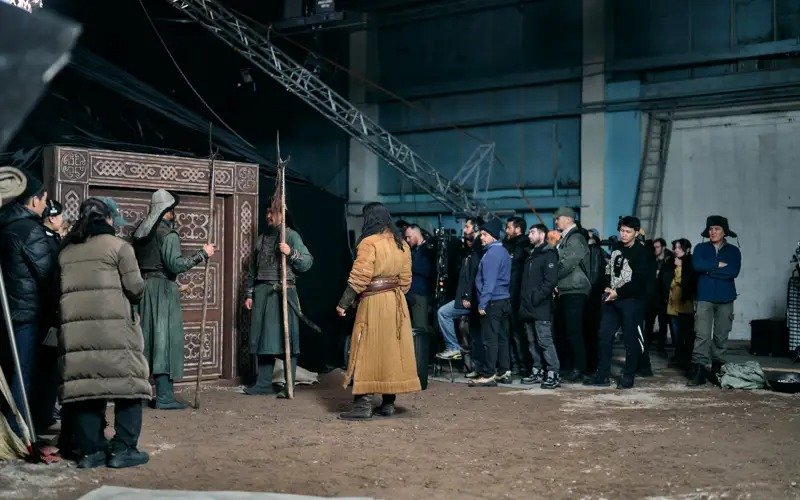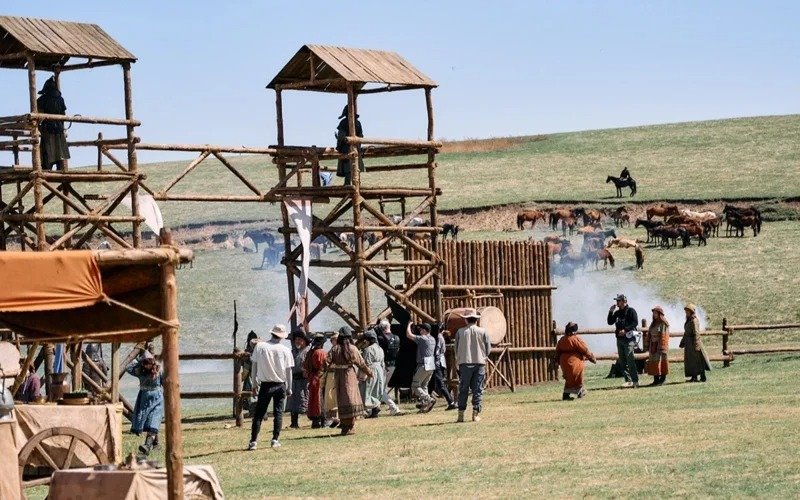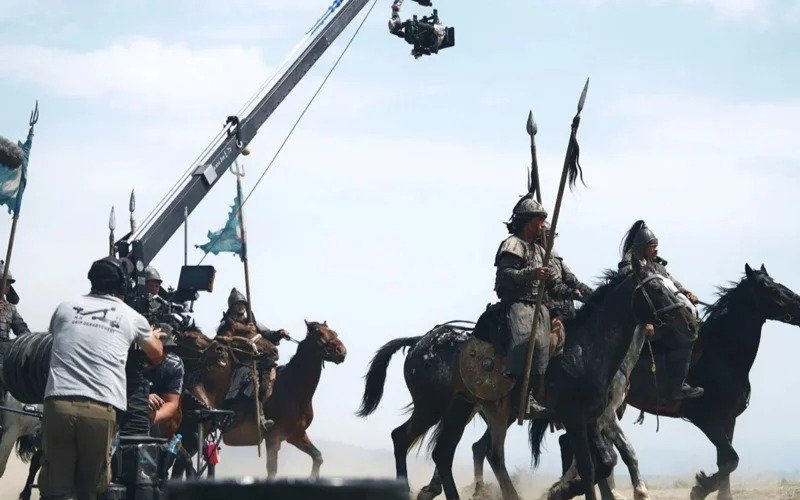The Golden Empire: Everything we know so far
The Golden Empire, a major historical drama, is expected to premiere on international streaming platforms as early as next year. The English-language series follows the life of Jochi, the eldest son of Genghis Khan and the founder of the Ulus of Jochi. A Kazinform News Agency correspondent takes a closer look at what’s known so far about the ambitious production.

A new perspective
According to Zhaksylyk Sabitov, PhD historian and director of the Scientific Institute for the Study of the Ulus of Jochi, the series offers a fresh take on the legacy of the Golden Horde. While most historical films have focused on the Mongol Empire through the lens of Genghis Khan, The Golden Empire places Jochi at the center of the narrative. It may be the first major attempt to portray the empire’s rise through his perspective.
"This series is aimed at an international audience, and that is its key difference. Until now, historical films and shows made in Kazakhstan were primarily created for local viewers. This is the first time a series is being developed from the outset for a global audience, and it introduces our interpretation of Kazakhstan’s history to the world," explained Sabitov.
By shifting the focus, The Golden Empire has the potential to reframe how Central Eurasia is seen - not as a remote frontier of larger empires, but as a political and cultural center in its own right.

The Ulus of Jochi played a pivotal role in the region’s ethnopolitical development. It was during this era that the Kazakh ethnogenesis was completed. After the Ulus dissolved in the 15th century, a number of successor states emerged, including the Kazakh Khanate in 1465, founded by Janibek and Kerei, descendants of Urus Khan, ruler of the Ulus of Jochi and a descendant of Genghis Khan.
If the series gains wide attention, it could serve as the foundation for future projects exploring later periods of Kazakh history, from the Kazakh Khanate through the 19th century.
Zhaksylyk Sabitov noted that interest in the series is already evident:
"To my knowledge, international interest began during the planning stage. Investors from China and Mongolia expressed interest in co-producing, but the Kazakh side chose to move forward with Turkish partners only. That already speaks to strong international attention early in the process."
Characters and casting
The show will likely feature, in addition to Jochi, Genghis Khan’s sons as supporting characters, as well as Jochi’s wife and children.
Casting was extensive, drawing over 4,000 submissions from the U.S., U.K., Mongolia, and Central Asia. A shortlist of 350 actors was personally selected by the show’s director, Emre Sahin. For some, this will be their first major international role.

Candidates were required to be between 8 and 60 years old, of Kazakh, Central Asian, or East Asian origin, fluent in English, and able to ride horses.
Behind the scenes
The series is produced by Karga Seven Pictures, a studio known for historical content such as Rise of Empires: Ottoman and The Story of Moses, both of which made Netflix’s Top 10 in more than 90 countries. Turkish director and showrunner Emre Sahin leads the project.
The show is supported by Kazakhstan’s Presidential Initiatives Fund “Dara” and is timed to coincide with the 800th anniversary of the Ulus of Jochi. TAURUS Asia Production is the project’s local partner.
The writing team includes Claire Moorsom (Outlaw King) and British historian Justin Pollard (Vikings). The script was developed by international writers working in close collaboration with Kazakhstani historians. An international advisory board of Golden Horde scholars was also formed to ensure historical accuracy, with members based in Kazakhstan, Mongolia, the UK, France, China, and the US.
According to Zhaksylyk Sabitov, The Golden Empire has strong commercial potential and could become an important tool for promoting Kazakhstan’s history abroad. Given the experience of the Turkish production team, the series is well-positioned to succeed, he notes. At the same time, production costs are significantly lower than for a full-length feature film like Nomad.
Filming
Production on The Golden Empire began on February 14, 2025, and lasted eleven and a half weeks. All scenes were shot in Kazakhstan. While the original plan included filming some episodes in Türkiye, director Emre Sahin and his team ultimately decided to move the entire production to Kazakhstan.
Filming took place across eight locations, including the Kazakhfilm studio, Suyktobe, the village of Yeskeldi bi, the Butak and Kimasar gorges, the sacred place of Tamgaly-Tas and the atmospheric City of Nomads.
To cover the vast geography, Sahin brought in an additional production unit led by a young Kazakh director. This allowed the crew to film simultaneously in multiple locations while staying on schedule and maintaining production quality.
The visual world of the series was created from scratch and built on real landscapes. The team made a conscious decision not to replace natural scenery with CGI. More than 3,000 props and set pieces were handcrafted, including weapons, tools, costume elements, and set decor. For the first time, custom-built modular yurts of 24, 18, and 12 kanats were constructed specifically for filming.

A key part of the production was the complex choreography of the battle scenes. These were handled by Nomad Stunts, one of Central Asia’s most renowned stunt teams, with credits including Disney’s Mulan, Netflix’s Marco Polo, Napoleon, Viking and other major projects. Thanks to their expertise, the series features large-scale action sequences involving up to 200 horse riders and tightly coordinated clashes.
Around 700 professionals took part in the production, working simultaneously from Los Angeles, New York, Astana, Almaty, and Istanbul. The core team was made up of Kazakhstani professionals, who accounted for about 70 percent of the crew.
“I’ve filmed all over the world, but this project will stay with me as one of the most meaningful. Kazakhstan is an incredible country. It has breathtaking landscapes, talented people, and so many stories still waiting to be told. Working with the Kazakhstani team has been an experience I truly value. These were deeply committed and highly skilled professionals who made creating big cinema feel easy,” said director and showrunner Emre Şahin.
When will the show be out?
Filming has been completed, with post-production now underway. This includes editing, music, sound design, and visual and graphic effects. The visual effects will be handled by studios that have previously worked with Walt Disney, Pixar, DreamWorks, Universal, and Sony Pictures, working closely with the Kazakhstani team.
The release date and platform have yet to be announced, but the creators are aiming for a global launch on major streaming platforms, including Netflix. The series will include six 45-minute episodes.
Earlier, Kazinform News Agency reported that filming for the historical series The Golden Empire has officially wrapped.

